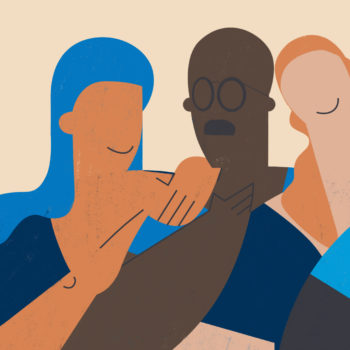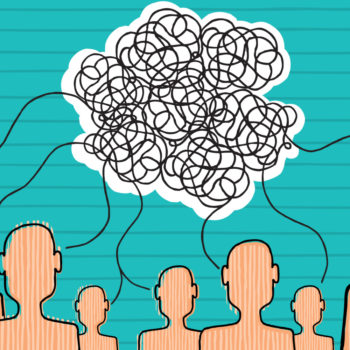The More You Know: Types of Organ and Tissue Donation
/ For Professionals : Eleanor Haley
Of note, the information in the following article was accurate at the time of writing in 2013. Though we anticipate it will continue to be mostly accurate, medical advances and process changes mean that some information may differ. We encourage you to use this article as a starting point but to have a thorough conversation with your donor program about what a person can donate and their specific donation processes.
At our inception, we decided to primarily focus on what we knew well (grief, duh), and leave the rest to experts on whatever topic they feel like expertise-ing. That being said, there is one end-of-life topic we know really well and after much consideration, we’ve decided today to discuss organ and tissue donation.
Not only because it’s helpful, but because we know decisions made before or at the time of death certainly affect the grieving process. And as much as you may think donation is about other people – those waiting, those in need – it is just as much about you (and us and anyone and everyone).
Allow us to explain:
- There's a good chance that at some point in your life you will be asked to make this decision on behalf of a loved one. And if asked, it will be at the time of their death.
- Chances are next time you renew your ID you will be asked, “Do you want to register to be an organ, eye, and tissue donor?” And by this time you will have been at the DMV for, like, 23 hours and you’ll just blurt out the first thing that comes to mind without thinking.
- A new person is added to the transplant wait list every 10 minutes. So get up, get a cup of coffee, check your teeth out in the mirror, comb your hair, and sit back down. Another person has been added.
- 18 people die each day waiting for transplants.
- The number of people waiting to receive organs reaches into the 100,000s and in 2017 only 33,611 people received a transplant. Now you do the math.
- Check our numbers at Organdonor.gov
Now I’m not saying this to guilt you into being a donor, I’m only trying to validate the importance of the conversation. In the end, this is a personal decision that must be made with the values and beliefs of the individual in mind. “Each according to the dictates of their own conscience,” in the words of Norman Rockwell (or something he once read somewhere). Either way, it’s a decision that deserves its fair share of consideration and we recommend you think about it now before it’s too late to make a rational decision.
“Hey now,” you say, “what makes you think I wouldn’t make a rational decision?”
I assure you we mean no offense and we understand you may have already decided how you feel about donation, in fact, many people have. But, as a friend of mine likes to say, “Everyone has a plan ‘till they get punched in the mouth”. Yes, this is a Mike Tyson quote. No, my friend is not Mike Tyson.
You see, research tells us that 85%-90% of people feel positive about donation when polled. It’s an incredible thing and it comes down to the basic virtue of wanting to help others in need. One says to themselves, “Hey, I like helping others in need. Who wouldn’t want to save a life? Psssh…easy choice.” The thing is, we see a large disparity between these numbers and the numbers of people who actually say ‘Yes’ to donation at the moment.
Our ‘why’ hypothesis simply boils down to the fact that, in reality, the context in which you’re asked to make a decision about donation is far more stressful than being asked by a random poller at your front door. The real context involves having just learned your loved has died or is going to die. The real context is shock, devastation, beeping monitors, white coats, IVs, confusion - basically the worst possible decision-making conditions.
At such a moment, you’d be well within your right to tell someone to bugger off just for asking for the time of day and now someone is going to ask you for your loved one’s organs?!?! Oh. Heck. No.
You see, sometimes in the overwhelming moments of grief, we make decisions based on emotion, instinct, and lack of information. Are these the decisions we will be happy with 6 months from now? Maybe yes, maybe no, but either way we are stuck with them.
Our aim with this article is to provide you with a little information about organ and tissue donation. Okay, first let's clarify an important concept and then we'll discuss 3 different types of donation.
Brain Death: An important concept
When someone is placed on a ventilator, it is with the intent to evaluate and treat them in the hopes they can recover. But sometimes, despite the medical team’s best efforts, the damage to the patient's brain is too great and they lose complete brain function.
This is different from a coma or a persistent vegetative state because every part of the brain, including the brain stem which facilitates all the most basic functions of life (reflexes, respiration, etc) no longer has blood flow. Brain death is totally irreversible and no one who has ever been declared brain-dead properly (following strict testing criteria) has ever recovered. Brain death is a medical and legal form of death, the death certificate is signed and there is a time of death. The person has died so the next step is to turn the ventilator off (unless the person is a donor).
This can be confusing because the person's heart is still beating (It has its own electrical rhythm which isn’t connected to the brain). The individual is dead yet appears alive, their chest is rising and falling and they are warm to the touch.
It can be very difficult to process the fact that the machines are breathing for your loved one and medicines are maintaining their blood pressure. But in reality, if removed from the ventilator, your loved one wouldn’t be able to take a breath. All consciousness, all personality, all awareness to pain, are gone. Their body is basically a shell keeping their organs going. I'm sorry if this sounds blunt.
Types of Donation:
Organ donation after Brain Death
After a family understands their loved one has been declared (brain) dead, the next conversation they will often have is about donation. This may seem like an insensitive time to have such a conversation, but once someone is removed from the ventilator the opportunity for donation is gone. What makes someone eligible to be a donor is the fact that they've died on the ventilator and the machines and medicines are keeping their organs healthy while the donation process is coordinated (organs are evaluated, recipients are located, etc).
In fact, because most people die due to cardiac death without ever being on the machines, very few people are able to help through organ donation, less than 4% of all people. Although it is never the hope of the family or hospital staff – it is such a rare event and the need is so great that if your loved one is declared brain dead and in the position to help others, it is vitally important to have the discussion.
The donation coordination process is complex, but current organ health and medical history will be evaluated to determine what organs can be donated. In general, an otherwise healthy person will be eligible to donate their heart, lungs, liver, kidney, pancreas, and intestines.
Tip: You’ve just finally started to understand brain-death and next thing you know you’re having to discuss donation. Can you say information overload? Write things down, ask questions, clarify, and take the time you need to process and decide your next steps.
Organ donation after the heart stops (cardiac death):
Sometimes individuals aren't brain-dead, yet they have brain damage so severe the doctors determine they will never wake up. These patients show very few signs of even the most basic brain function and if removed from the ventilator they would be unable to breathe on their own for anywhere from a few minutes to a few hours. In these instances, families are often faced with making the heart-wrenching decision to remove their loved one from the ventilator.
In very specific circumstances, these patients will be eligible to be organ donors. These circumstances generally include: if they are otherwise healthy or have a healthy kidney(s) and/or liver, are under the approximate age of 60, and if their heart is likely to stop within 1-2 hours of being taken off the ventilator. In this scenario, a person may be able to donate their liver and/or kidneys and sometimes their pancreas and/or lungs. The heart is not able to be donated for a transplant because it will have stopped beating and will have been without blood flow and oxygen for too long.
Heads Up: In these scenarios donation will most likely not be discussed with a family until AFTER they have made the decision to remove their loved one from the ventilator. The assumption is that up until this decision has been made, the family still wants their loved one treated with the hope of recovery. The donor program and hospital staff are usually very careful to ensure the donation conversation happens at the most appropriate time, and you can't talk about donating your loved one's organs until you've accepted they are going to die.
You may not remember this post if, God forbid, the time ever comes to make decisions such as these. But if you do you might want to start thinking about donation and ask the hospital staff if you can speak with a representative of the donor program for more information.
Tissue Donation
Organ donation is most well-known, but as we've established, only a very small percentage of people are able to be organ donors. Far more people are eligible to help others through tissue donation because tissues can be donated for up to 24 hours after the heart stops beating.
Tissue donors can help upwards of 50 different people through things like corneas, bone grafts, skin grafts, and heart valves. These are life-changing gifts for individuals who have lost their sight, suffered crushing bone injuries, face orthopedic surgeries, suffered severe and painful burns, and those in need of a heart valve replacement.
You may be thinking, "hold up, they take everything?!?" But it's important for you to know, it's not an all or nothing thing. The person authorizing donation can decline to donate the tissues they aren't comfortable with. And even when someone donates all the tissues they are eligible to donate they can still have regular viewings and memorial services, although it may mean a bit more work for the funeral home.
Heads Up: If your loved one is eligible to be a tissue donor you will most likely receive a phone call from your area's donor program after their death. This call can catch you off guard because many people are still in shock, surrounded by family and friends, or well into planning arrangements. It can also be confusing for those who have never heard the distinction between organ and tissue donation and many are surprised to hear their loved one cannot donate organs. Rest assured, this call will be from a trained professional who will provide you with all the information you need and answer all your questions.
Alright, that's enough for today. You better just subscribe so you don't miss anything.
We wrote a book!
After writing online articles for What’s Your Grief
for over a decade, we finally wrote a tangible,
real-life book!
What’s Your Grief? Lists to Help you Through Any Loss is for people experiencing any type of loss. This book discusses some of the most common grief experiences and breaks down psychological concepts to help you understand your thoughts and emotions. It also shares useful coping tools, and helps the reader reflect on their unique relationship with grief and loss.
You can find What’s Your Grief? Lists to Help you Through Any Loss wherever you buy books:





sandy frankel December 15, 2014 at 11:57 am
My 36 year old son was declared brain dead. I had to bring the issue of him being “harvested” (organ donation medical speak)
We were in a teaching hospital in Brooklyn, Woodhull, they were not used to families making this offer and acted unprepared and shocked. My son suffered sudden cardiac arrest while living in Brooklyn as a graphic designer for NBC. We lived in California.
We flew to NYC on a Monday night and stayed at his bedside for 7 days, he never awoke from a coma. He was declared brain dead the next Monday.
Let me share with you the steps and sometimes uncomfortable process of organ donation.
1. You don’t get to see your loved one actually “die” in the sense that we think of. Our son was still on life support and breathing. So leaving him was difficult as they appear to still have life. You are given the option of staying until they take him into surgery to remove organs or have them call you when they are completed. We did not. We left the hospital. We had enough suffering,but I did have to endure a 2 hour phone interview from the organ team regarding very specific things about my son. Very specific. I had the conversation in privacy so my family did not have to hear the painful conversation. It was very personal and you needed to know his life medical history, drug use, prescription meds, travel history, vaccinations, etc.
2. They contact you when he was transferred to the funeral home
3. NYOD ( New York organ donation) is one of the best programs anywhere. They were caring thoughtful and kind)
4. You can choose what you do and don’t wish to donate. We choose to donate everything possible.
5. We don’t know if he would have chosen to donate, but being th kind of person that he was,we think he would have agreed. He was gone, and he was going to be cremated. This decision could save lives, how could we not?
6. Remember-this is brutal to read. Your loved ones body will be altered . Skin,corneas, bones, organs, etc will be removed.If you receive an autopsy report it will detail what was surgically removed graphically. So prepare yourself. I read everything, this is my son. I wanted to know it all.
5. You will receive a lovely certificate thanking you and eventually a report of where the organs went. They don’t give you names, just age and gender and area. For corneas, the receiver must contact the donation group if they wish to contact you. With organs, you write a letter to them, the group forwards it on and they can respond if they wish. Nones of ours ever responded. I hope they are doing well.
6. You may be invited to events honoring those that donated and those that received. I attended one event after about 5 months at St Patricks cathedral in NYC. It was one of the hardest things I have ever done. It was the funeral we didn’t choose to have (we held a celebration of his life) it was emotional and difficult, but beautiful and I am thankful that I went. My other son and my late sons girlfriend also attended. It was to hard for them.
7. I made a quilt square in his honor that will be hung in NYC.
8. I recommend this process to everyone. It prolongs your experience some but it gives you great comfort in knowing that your loved one lives on somehow. I don’t believe in afterlife so this his legacy and I know that someone sees through his corneas and a life was saved because of his liver. That is his afterlife.
choose donation.
Becky Livingston September 23, 2013 at 12:16 pm
Wow, what a great topic to raise here. Thank you. So informative.